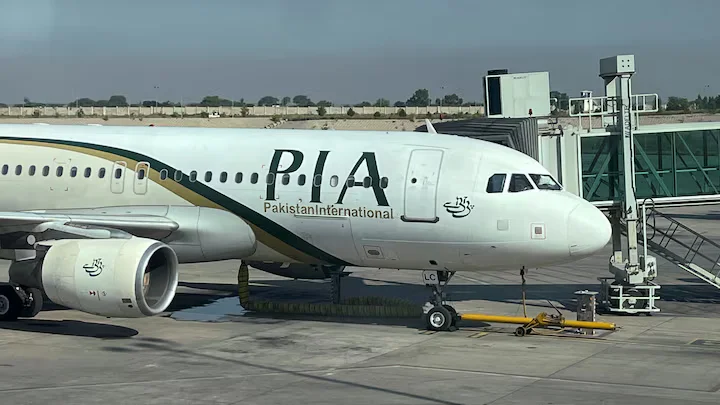The bidding process for Pakistan’s national airline will open on Thursday, with just one participant in the first major privatisation in over a decade.
The cash-strapped country is looking to offload a 51-100% stake in debt-ridden Pakistan International Airlines to raise funds and reform bleeding state-owned enterprises as envisaged under a $7 billion International Monetary Fund programme.
The Privatisation Ministry said that the bidding process for the national airline would begin at 1:30 p.m. (0830 GMT) and bids will be opened at 6:30 p.m. in Islamabad.
The government had pre-qualified six groups in June, but only one – real estate development company Blue World City – met a Tuesday deadline to submit final documents to participate in the process.
Officials from three groups that chose not to bid told Reuters on condition of anonymity that there were concerns about the government’s ability to stand by agreements made for the flag carrier in the long term.
One executive voiced concern about policy continuity once a new government came in. The government of Prime Minister Shehbaz Sharif has relied on a coalition of disparate political parties.
The disposal of PIA is a step former governments have steered away from as it has been highly unpopular given the number of layoffs that would likely result from it.
Also See: PIA flight steward suspended for smuggling 16 mobile phones
Underpinning these concerns over policy continuity and honouring contracts was the government’s termination of power purchase contracts with five private companies earlier this month, as well as the process of re-negotiating other sovereign guaranteed pacts.
Changes in Pakistan’s decade-old agreements with private IPP projects, largely financed by foreign lenders, to address chronic power shortages, “raises the risk of investing as well as doing business in Pakistan, even in the presence of sovereign contracts as well as guarantees,” said Sakib Sherani, an economist who heads private firm Macro Economic Insights.
Other concerns raised by potential bidders included inconsistent government communication, unattractive terms and taxes on the sector, in addition to PIA’s legacy issues and reputation.
This news is sourced from Reuters and is intended for informational purposes only.


![Ukrainian and Russian flags with soldier silhouettes representing ongoing conflict. [Image via Atlantic Council].](https://southasiatimes.org/wp-content/uploads/2026/02/2022-02-09T000000Z_1319661209_MT1NURPHO000HXCNME_RTRMADP_3_UKRAINE-CONFLICT-STOCK-PICTURES-scaled-e1661353077377.jpg)



![Truck traveling along the Makran Coastal Highway in Balochistan, with rugged cliffs and the Arabian Sea coastline in the background [Image via Getty Images].](https://southasiatimes.org/wp-content/uploads/2026/02/Balochistan-2.webp)